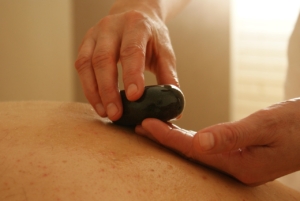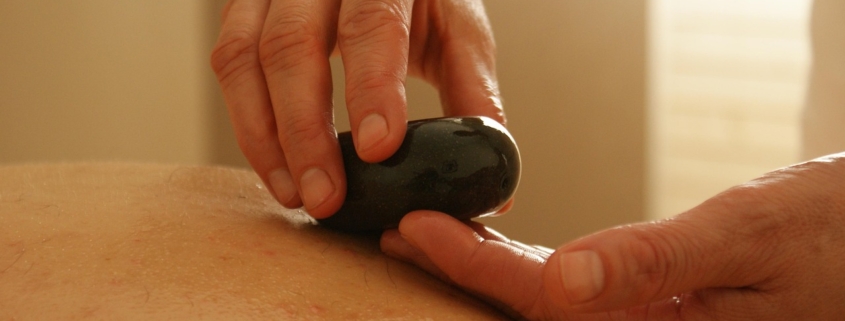The Role of Thai Massage in Modern Stress Management

A Time-Tested Solution for a Fast-Paced World
In the age of digital overload, economic pressure and continuous multitasking, chronic stress has become a public health concern. People are increasingly turning to nonpharmaceutical methods to manage their emotional and physical well-being. Among the most respected holistic treatments is Thai massage—a therapeutic approach that offers far more than muscle relief.
With its combination of rhythmic compression, assisted stretching and energy line stimulation, Thai massage provides a systemic way to reduce stress, restore equilibrium and promote long-term health.
How Stress Impacts the Body
Stress is more than a mental state—it triggers physiological responses that can lead to a range of symptoms, including:
-
Increased heart rate
-
Muscle tension
-
Poor sleep
-
Weakened immunity
-
Digestive disruption
Chronic stress keeps the body in a prolonged state of “fight or flight,” releasing hormones such as cortisol and adrenaline that, over time, wear down internal systems. Managing stress isn’t just about mental relaxation—it’s about preserving physical health.
Why Thai Massage Works as a Stress Management Tool
Thai massage is uniquely suited for stress relief because it addresses both the body and mind simultaneously. Here’s how it supports relaxation and recovery:
Nervous System Regulation
The slow, deliberate pressure and joint mobilization help shift the autonomic nervous system from sympathetic (stress) dominance to parasympathetic (rest and digest) activation. This transition reduces anxiety, calms breathing and improves heart rate variability.
Improved Circulation and Oxygenation
Thai massage techniques stimulate blood flow and lymphatic drainage. This helps supply muscles and organs with oxygen-rich blood while aiding in the removal of waste products that can accumulate under stress.
Muscle Release and Physical Comfort
Muscles tend to contract in response to stress, leading to headaches, neck stiffness and back pain. By applying targeted pressure and guided movement, Thai massage alleviates these physical symptoms and reduces the feedback loop that maintains tension.
Mindful Presence
Unlike more passive massage types, Thai massage requires active participation. The recipient often breathes in sync with the therapist’s movements or adjusts positions slightly. This present-moment awareness fosters mindfulness—a proven antidote to anxiety and overthinking.
Key Techniques Used for Stress Relief
While every practitioner has their own method, these are common elements used in Thai massage sessions for stress management:
-
Palm Pressing: Gentle, sustained pressure along the back and limbs to soothe tight fascia.
-
Spinal Twists: Realign posture and decompress the spine.
-
Leg Extensions: Loosen the hips and lower back where stress often accumulates.
-
Neck and Shoulder Work: Direct attention to areas most affected by modern desk work and screen use.
Integrating Massage Into Your Routine
Incorporating Thai massage into a stress management plan doesn’t require weekly appointments. Even monthly sessions have been shown to improve markers of emotional well-being. Some professionals alternate Thai massage with meditation or physical therapy, depending on their unique needs.
Scheduling at-home treatments has also become easier with platforms like 홈타이, which offer authentic Thai massage in the comfort of your residence. These services reduce the hassle of commuting—another common stressor—and allow for deeper relaxation in a familiar environment.
Additional Tips to Maximize Results
-
Avoid caffeine before your session.
-
Schedule your appointment at the end of the day or week.
-
Pair with breathwork or mindfulness practices.
-
Communicate clearly with your therapist about areas of tension.
Who Benefits Most?
While Thai massage is helpful for nearly everyone, it’s especially effective for individuals with the following profiles:
-
Office workers with sedentary habits
-
Caregivers or healthcare professionals under emotional strain
-
Entrepreneurs or executives with high-pressure schedules
-
Athletes managing performance stress
Closing Thoughts
Stress is an inevitable part of life, but how we respond to it makes all the difference. Thai massage offers a hands-on, time-tested solution that restores both physical comfort and emotional calm. It’s not a luxury—it’s a therapeutic necessity for many living under daily strain.
Whether you choose to receive your treatment in a spa or opt for the convenience of 홈타이 in your home, Thai massage serves as a restorative practice that reinforces resilience from the inside out.

